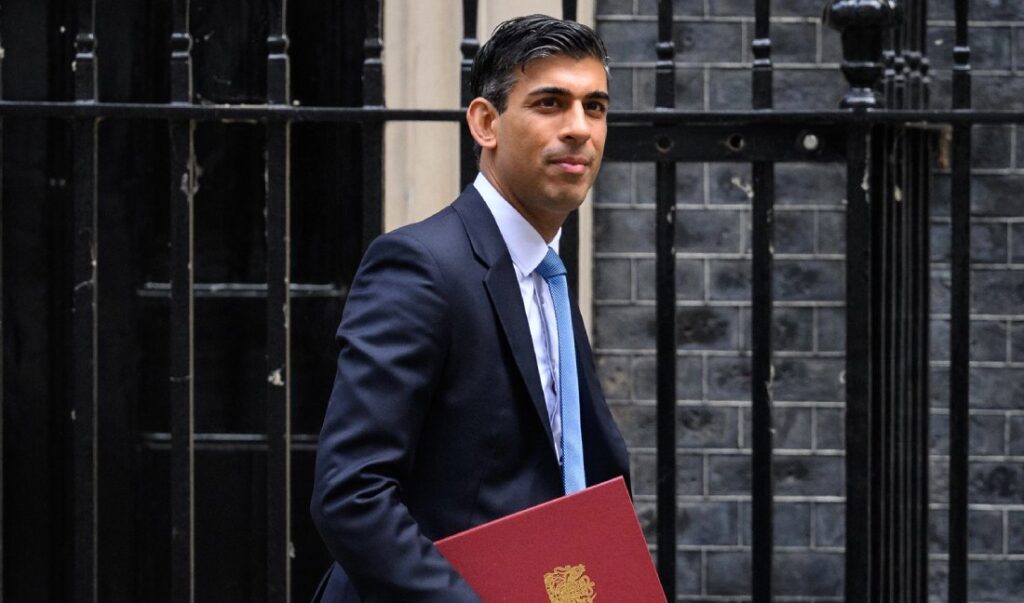Rishi Sunak was chosen by his party’s MPs to become the UK’s fifth prime minster in six years. His job was to restore confidence in the Conservative government after Boris Johnson’s scandal-plagued tenure, and Liz Truss’s disastrous 44 days as prime minister during which her plans for tax cuts for rich people crashed the UK economy.
Sunak has closed the gap in the opinion polls opened by Liz Truss, but his Conservative party remains 20 points behind the opposition Labour party. Based on current polls, if there were an election tomorrow, the Conservative party would lose around 190 seats, giving the Labour party a majority of 120 in the 650-seat UK parliament. Since he became prime minister, Sunak’s personal ratings have also fallen sharply. Polls show that 53% of people now believe that Sunak is weak, compared to 37% in December 2022, while 45% think he is incompetent compared to 32% just two months ago.

Sunak’s job was always going to be difficult. He became leader of a Conservative party, which after 13 years in government, is ideologically exhausted and increasingly divided. It’s MPs from prosperous areas want to reduce government spending and cut taxes, whilst its MPs from poorer areas want more government spending and investment. The coalition of richer and poorer parts of the UK, with which the Conservative party won the 2019 election, was based on two things – Brexit and Boris Johnson. Both cause problems for Sunak.
Brexit and Boris
Disenchantment with Brexit is growing as its negative effects on trade, investment and the labour force become increasingly clear. The IMF forecasts that the UK will be the only advanced economy to shrink in 2023. Sunak blames the Covid pandemic and Russia’s invasion of Ukraine for the UK’s economic problems, ignoring Brexit’s damaging economic effects, in part because he lacks any support from his party to do anything about them.
Boris Johnson refuses to go away. Many Conservative MPs distrust Sunak. They believe that his resignation as finance minister in July 2022 precipitated Johnson’s downfall as prime minister. It is no secret that Johnson, constantly seeking media attention, plans a comeback. When Ukraine’s President Zelensky visited London on 9 February 2023, Johnson argued that the UK should give him fighter jets for the war against Russia. Although Sunak is following NATO policy by not giving fighter jets to Ukraine, Johnson’s calculated comments have made him look weak.

Miscalculations
In some ways, Sunak has made his situation worse. Splits in the Conservative party required Sunak to appoint ministers that would unify his party. Some of his choices now look unwise. In January, Sunak had to fire Nadhim Zahawi, the Conservative party chairman. Zahawi had breached the ministerial code of conduct by not telling officials that he was under investigation by the UK tax authorities when Boris Johnson appointed him finance minister in July 2022. Zahawi has now paid his multi-million-pound tax bill, plus a penalty of almost £1m.Sunak’s justice minister, Dominic Raab is now under investigation following eight complaints of bullying made by 24 civil servants. The investigation continues but few expect Raab to keep his job.
Sunak has also misjudged the mood in the UK. On 1 February 2023, the day before Sunak celebrated 100 days as prime minster, around half a million public sector workers were on strike, including teachers, university lecturers, civil servants, train and bus drivers. Sunak is refusing to negotiate with the public sector unions. His gamble is that public opinion will turn against the strikes and that they will pose problems for the Labour party, which receives financial support from some unions. But public support for the strikes has remained strong. In a cost-of-living-crisis, many identify with the strikes, which are not only about pay, but also the deterioration of the UK’s public services after 13 years of underinvestment.

Dealing with problems posed by the pandemic, Brexit, Ukraine and the economic mess caused by Liz Truss would challenge any prime minister. But events have exposed not only Sunak’s inexperience, he has been an MP only since 2015, but also his poor political judgment. Although more intelligent and trustworthy, Sunak lacks Boris Johnson’s charisma. Sunak is more management consultant than prime minister. Being comfortable with financial information and a spreadsheet, Sunak can find ways to cut staff and wages to make a firm more profitable. However, he is unmoved by the consequences of his proposals for people, because, personally, he is unaffected. In politics, the managerial approach has its limits. So far, Sunak is failing to convince people that he has the broader political leadership qualities needed to steer the UK through its current crises.
Recently in parliament, Labour party leader Kier Starmer implied that the job of prime minister was ‘too big’ for Sunak who was ‘hopelessly weak’. Many now seem to agree.


